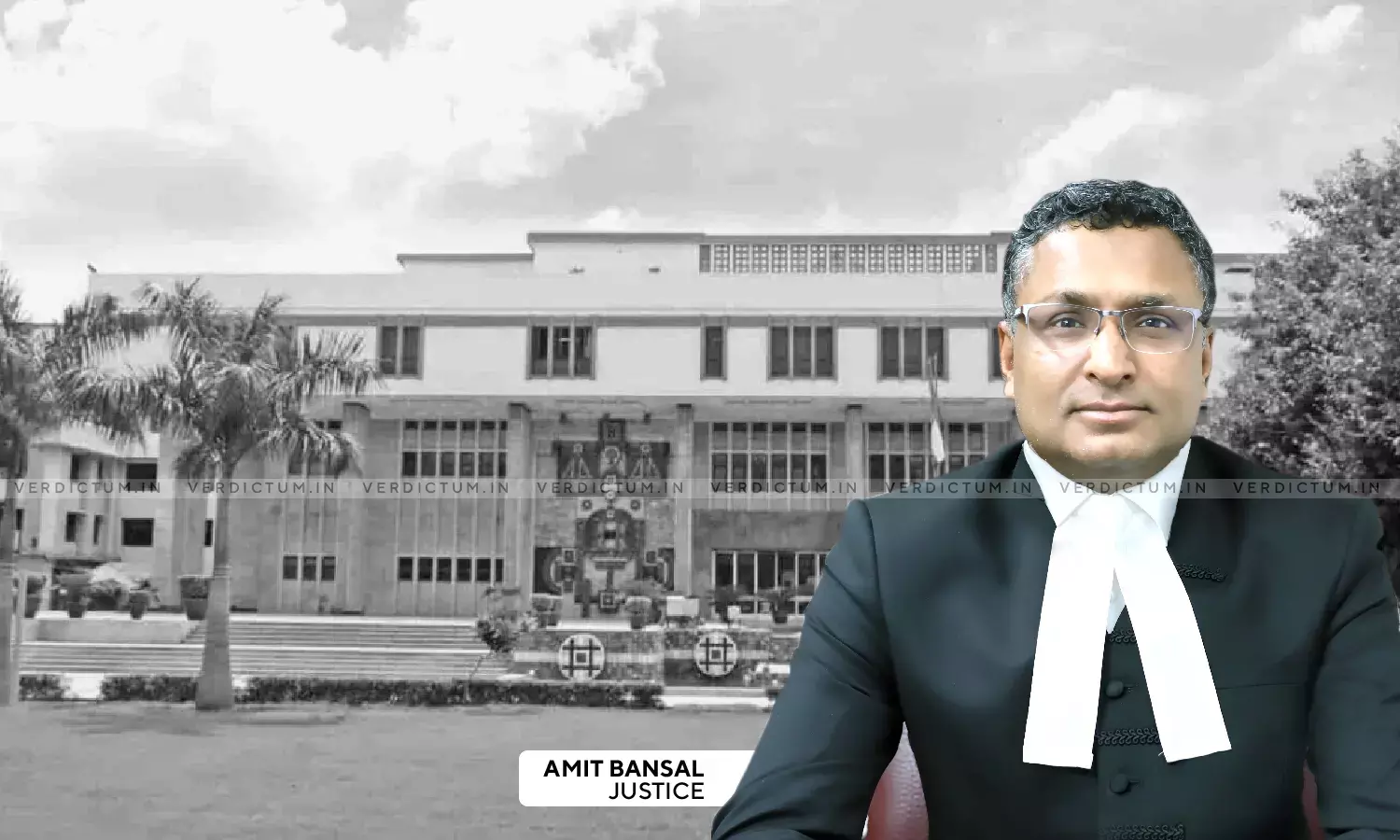Conduct In Jail Satisfactory: Delhi HC Reduces Sentence Of 'Digital Rape' Accused

The Delhi High Court reduced the sentence of a man from twenty years to twelve years who was convicted for committing digital rape on a minor girl. It said that his conduct in jail has been satisfactory.
Digital Rape refers to the act of penetration using fingers or toes without the consent of the victim. The word “Digital” derives its meaning from the English word ‘digit’ which means finger, thumb, and toe.
The Court was dealing with an appeal filed by the said man for setting aside the judgment of conviction and order of sentence passed by the Additional Sessions Judge (POCSO).
A Single Bench of Justice Amit Bansal said, “A perusal of the aforesaid Status Report as well as the Nominal Roll on record would show that the appellant has undergone more than nine years out of the sentence of twenty years awarded to him. His conduct in jail has been satisfactory and during incarceration he has been working as a ‘langar sahayak’. He has also earned a remission of 6 months and no punishment has been awarded to him during his period of incarceration. Further, he has not been involved in any other offence.”
The Bench took note of the fact that the convict was a young man of around 28 years at the time of commission of offence and as on date, is around 38 years of age and has a substantial life ahead of him and also has an aging mother to look after.
Advocate Banka Bihari Panda appeared on behalf of the appellant while APP Shubhi Gupta appeared on behalf of the respondent.
Brief Facts -
The appellant was convicted for the offences punishable under Section 376(2)(i) of the Indian Penal Code (IPC) and Section 6 of the Protection of Children from Sexual Offences Act, 2012 (POCSO). Vide an order of sentence, he was sentenced to rigorous imprisonment for a period of 20 years and to pay a fine of Rs. 15,000/-. However, no sentence was awarded to him under Section 376 of the IPC in view of Section 42 of POCSO Act. In 2014, a call was received by the police from the father of the child victim regarding sexual assault on his daughter who was aged four and a half years at the time of incident.
The mother of the victim stated that her daughter was taking tuitions and one day on enquiring why she came early, the victim stated that the appellant who was the brother-in-law of the tuition teacher removed her underwear and inserted his finger in her private parts. The teacher entered the room and seeing the incident, she beat him up. She confirmed the incident when the victim’s mother confronted her. Hence, an FIR was registered and the appellant was arrested. The Sessions Court accordingly convicted him and aggrieved by this, he was before the High Court.
The High Court after hearing the contentions of the counsel observed, “It is pertinent to mention here that no cross examination of the doctor who prepared the MLC was done by the appellant. Additionally, no cross-examination of the police officials with regard to samples not being sent for FSL examination was done by the appellant. … In terms of Section 3(b) of the POCSO Act, penetrative sexual assault can occur if there is insertion, to any extent, of an object or body part of the accused into the vagina, urethra, or anus of the child.”
The Court further noted that under Section 29 of the POCSO Act, there is a statutory presumption raised against the accused in respect of offences under Sections 3, 5, 7 and 9 of the POCSO Act and in the present case, the accused has failed to successfully rebut the aforesaid presumption by leading evidence or discrediting the evidence of the prosecution.
“The Trial Court had sentenced the appellant for twenty years of rigorous imprisonment observing that the appellant had committed ‘digital rape’ on a child of four years at the time of incident. … There is no straight-jacket formula under criminal law for sentencing an accused. Objective of sentencing an accused should be that of deterrence and reformation. Restorative justice under criminal law aims at giving an opportunity to the convict to reform and become a useful contributor to the society, once released from jail”, added the Court.
The Court said that the ends of justice will be met if the sentence of the appellant is reduced to twelve years and in this view of the matter, it reduced the his sentence from twenty to twelve years and retained the fine of Rs.15,000/- awarded by the Trial Court.
Accordingly, the High Court partially allowed the appeal, upheld the conviction, and reduced the sentence.
Cause Title- Pradeep Kumar v. State (Neutral Citation: 2024:DHC:53)


